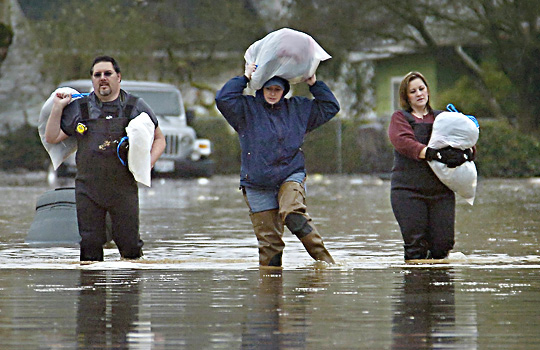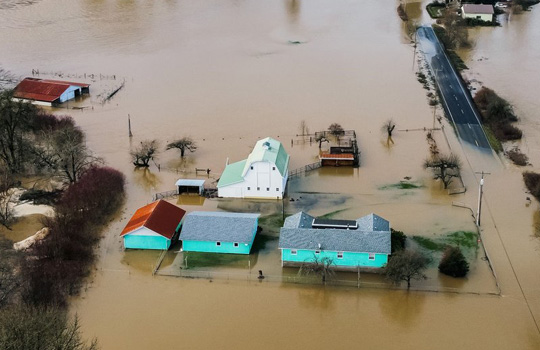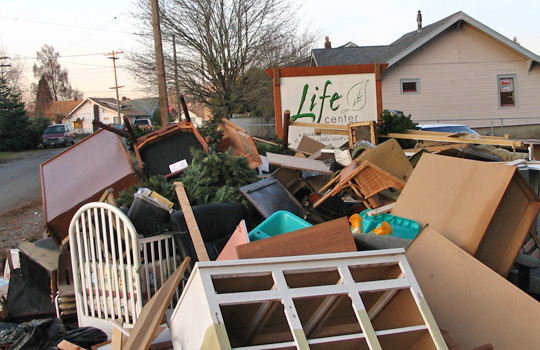Flooding dangers are urgent today and will intensify over time.
We know renters have unique needs when it comes to preparing for and recovering from flood events. We’re here to help you and your belongings stay safe before, during, and after a flood.
Did you know?
There are no legal requirements in Washington state for renters to be notified of flood risk.
A few tips on renters’ rights:
- Familiarize yourself with your lease, which outlines conditions for rent abatement or when a tenant can break a lease.
- Familiarize yourself with what maintenance and repairs landlords are required to do under the Washington State Residential-Tenant Landlord Act.
- Review the Washington State Attorney General’s office’s great list of resources for renters.
- Look into your security deposit protections if the property becomes uninhabitable.
- If you experience flood damage or are having trouble with your landlord, don’t withhold rent. This could start an eviction process.
- Review this tip sheet should you have trouble working with your landlord on repairs or other issues.
- Tenant rights do not apply to mobile home owners renting lot space.
Be Prepared
- Understand your flood risk. Know if you live in a flood hazard area and how flooding may affect you with resources like FEMA maps, or reaching out to our office.
- Know when a flood is coming. Sign up for the Chehalis River Basin Flood Warning System to receive high water alerts and weather forecasts. Contact your county’s emergency management department for other emergency alerts.
- Prepare a household response plan. Ask your landlord whether they have a flood response plan for the property. It’s a good idea to create your own, too. We offer a comprehensive guide, and our experts can help you create a custom plan.
- Protect your property. There are likely measures you can take now to avoid damage, like limiting the use of crawlspaces and basements to only quickly moveable storage, utilizing hooks and shelves to elevate belongings off the ground, and preparing a “go kit.”
- Consider adding flood protection to your renters insurance policy. Flood damage to your personal belongings is not often not covered by general renters or your landlord’s insurance policies. The National Flood Insurance Program (NFIP) has more information on low-cost, renter-specific flood insurance options.
Respond and Recover
During a flood:
- Ensure your safety. Your safety is most important. Check weather and flooding progress with the resources on the Chehalis River Basin Flood Warning System as well as your county’s emergency alert system.
- Contact your landlord and call your neighbors. Ensure they are aware of the situation in your area.
- Refer to your household response plan. Take actions outlined in your plan, such as securing livestock and pets, moving damageable items, sandbagging low points where water could enter, or potentially leaving the area.
- Understand available resources. Check with your local county emergency management departments for information about sand bags, alternative shelter, and other assistance.
After a flood:
- Ensure your safety. If you had to evacuate your home, check with local officials whether it’s safe to return. Look out for hazards like mold and structural integrity.
- Document damages. Take photos and notes prior to any repairs for insurance claims and to document timelines.
- Contact your landlord in writing to discuss any damage that may have occurred. The timeline for repairs doesn’t begin until a written request is submitted to the landlord.
- Know your rights and responsibilities. Connect with resources through the Washington State Attorney General’s office about any costs or damages that were incurred.
- Update your household response plan with any needed adjustments, based on your experience.
Resources for Landlords
Curious about what measures you can take to protect your home, property, and the safety of your tenants during a flood? Connect with our team! We’re here to help. Reach out for assistance with any of these steps and more at kat.dickey@ecy.wa.gov or (360)-995-3129.


